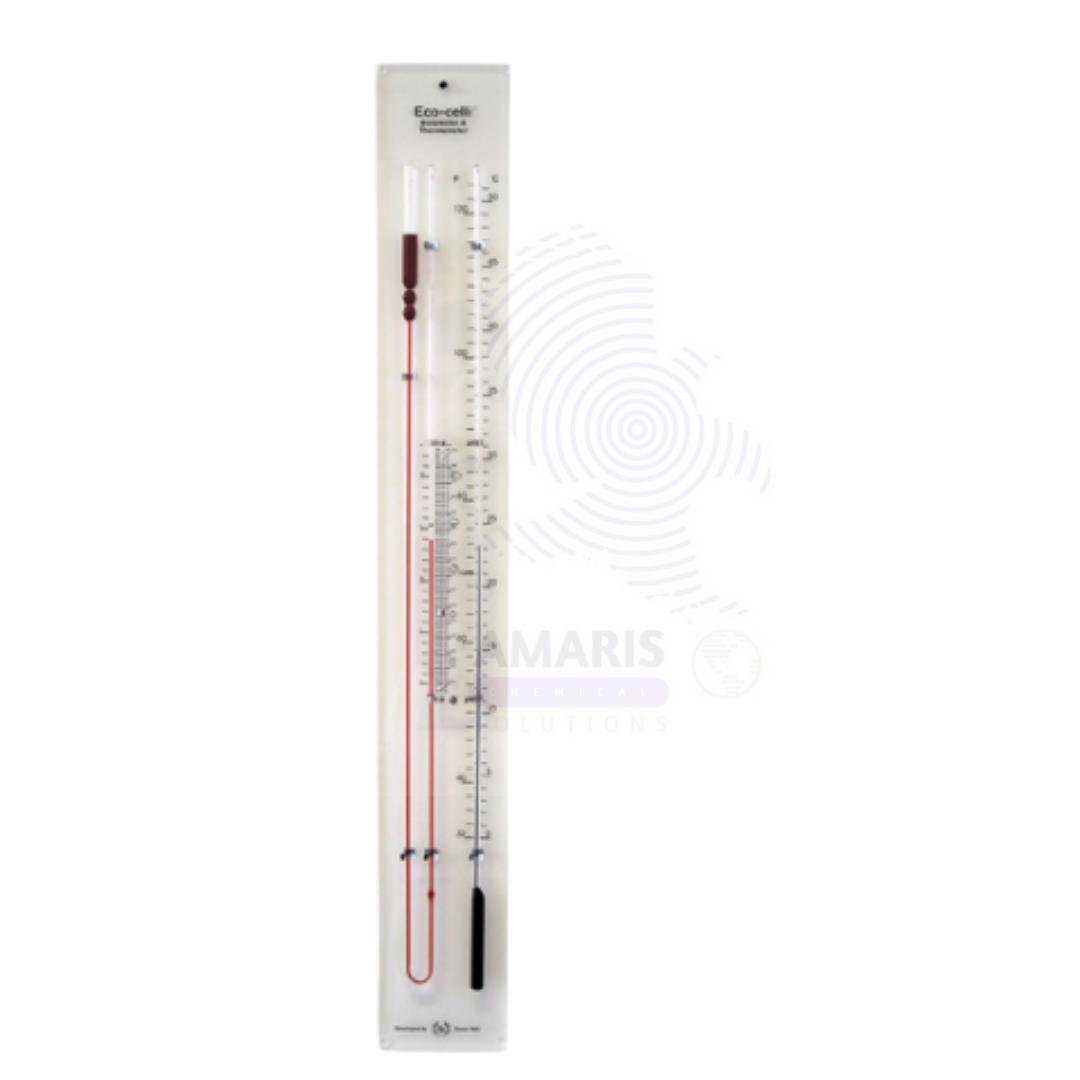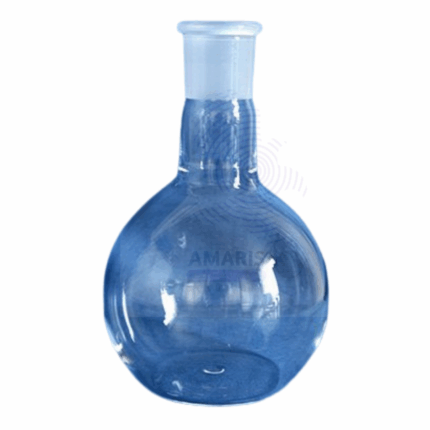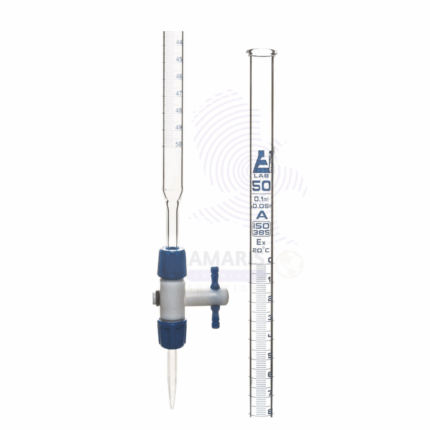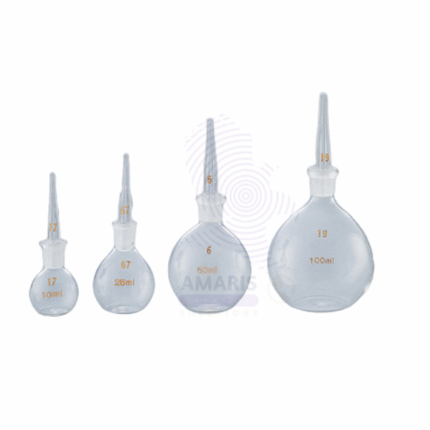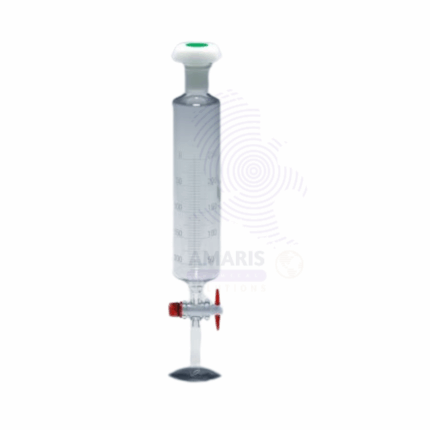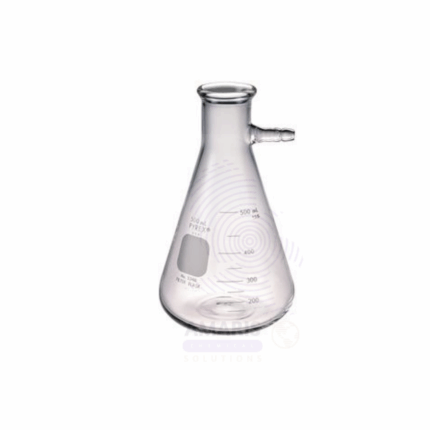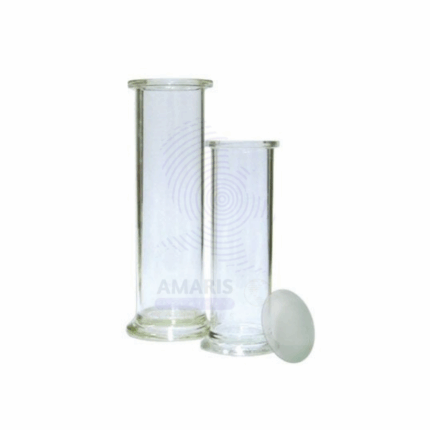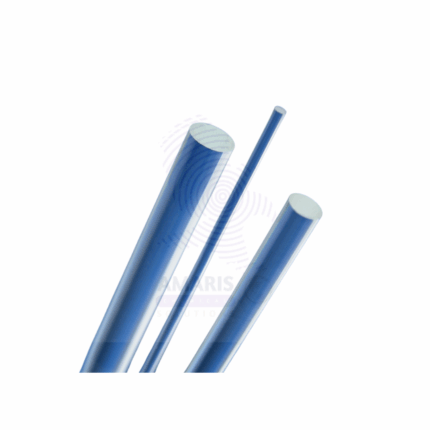“Aspirator Bottle Glass” has been added to your cart. View cart

Deflagrating Spoon with lid
$ 17.28 Original price was: $ 17.28.$ 17.09Current price is: $ 17.09.
Barometer Tubes
$ 7.15 Original price was: $ 7.15.$ 7.08Current price is: $ 7.08.
Whatsapp Order
Barometer Tubes are precision glass tubes used in barometers to measure atmospheric pressure. These tubes are typically filled with mercury or other suitable liquids and are sealed to allow accurate pressure readings based on liquid column height. Barometer tubes are essential components in meteorological instruments and laboratory equipment for pressure measurement and environmental monitoring. Manufactured with high-quality, clear glass, they provide durability, clarity, and accurate fluid displacement for precise readings.
Description
Table of Contents
Toggle
Barometer Tubes
Primary Uses
- Laboratory Applications
- Used in mercury barometers to measure atmospheric pressure in weather studies.
- Essential for experiments requiring accurate pressure measurement and calibration.
- Employed in physics and meteorology laboratories for teaching and research.
- Utilized in pressure-related scientific investigations and demonstrations.
Secondary Uses
- Industrial Applications
- Incorporated into industrial pressure monitoring systems.
- Used for calibrating and testing pressure sensors and instruments.
- Applied in quality control processes where pressure measurement is critical.
- Useful in environmental monitoring stations for atmospheric data collection.
KEY PRODUCT FEATURES
1.Basic Identification Attributes
- Material: High-quality, clear borosilicate or soda-lime glass
- Function: Facilitates accurate measurement of atmospheric or fluid pressure
- Dimensions: Various lengths and diameters depending on barometer type
2.Physical & Chemical Properties
- Transparency: Clear for easy reading of liquid levels
- Resistance: Chemically inert to mercury and other barometric fluids
- Fragility: Glass material requires careful handling to avoid breakage
3.Safety & Hazard Attributes
- Toxicity: Mercury-filled tubes are hazardous; handle with care
- Breakage Risk: Glass shards may cause injury upon breakage
- Environmental Risk: Mercury disposal must comply with hazardous waste regulations
4.Storage & Handling Attributes
- Storage Conditions: Store upright in cushioned, secure areas away from impact
- Handling Precautions: Use protective gloves and eyewear when handling mercury tubes
5.Regulatory & Compliance Attributes
- Compliant with laboratory safety standards for mercury handling
- Manufactured to meet meteorological and laboratory equipment specifications
6.Environmental & Health Impact
- Mercury poses environmental hazards; use alternatives where possible
- Proper disposal required for mercury-containing tubes
SAFETY HANDLING PRECAUTIONS
Safety Handling Precautions
- Handle with care to prevent spills and breakage
- Use in well-ventilated areas and wear protective equipment
First Aid Measures
- Mercury Exposure: Seek immediate medical attention if mercury is inhaled or contacted
- Glass Injury: Clean wounds promptly and seek medical care for cuts
Firefighting Measures
- Fire Hazard: Non-flammable glass and mercury
- Extinguishing Media: Not applicable
Related products
Boiling Flask Flat Bottom
The Boiling Flask Flat Bottom is a laboratory glassware item designed for heating, boiling, and mixing chemical solutions. It features a flat base that allows it to stand independently on lab benches or heating surfaces. Made from high-quality borosilicate glass, it provides excellent thermal resistance and chemical durability. The flask’s wide mouth facilitates easy pouring, filling, and cleaning. It is commonly used in laboratories for distillation, reflux, and other heating applications requiring uniform heat distribution.
Burette PTFE
The Burette PTFE is a high-quality laboratory burette constructed with a polytetrafluoroethylene (PTFE) stopcock and nozzle, providing excellent chemical resistance and durability. Known for its non-reactive and non-stick properties, PTFE ensures smooth and precise flow control during titration and other volumetric analyses. This burette is ideal for handling corrosive and aggressive chemicals, maintaining accuracy and reliability in laboratory measurements.
Density Bottle
The Density Bottle is a precision glassware device used for determining the density of liquids by measuring a known volume and mass. Typically made from high-quality borosilicate glass, the bottle features a tight-fitting stopper with a capillary hole to allow excess liquid to escape, ensuring volume accuracy. It is commonly used in laboratory settings for experiments in physical chemistry, materials science, and industrial quality control processes. The device provides a reliable method for comparing the density of various substances with high repeatability.
Dropper
Dropper is a small laboratory tool used to transfer precise volumes of liquids in drops. Typically composed of a glass or plastic tube with a squeezable rubber bulb at one end, the dropper allows controlled dispensing of liquids for experiments, titrations, or sample preparations. Its simple design enables easy handling and measurement of small quantities, making it indispensable in chemical, biological, pharmaceutical, and educational laboratories. Droppers are ideal for adding reagents dropwise, conducting qualitative tests, or transferring liquids without contamination.
Dropping Funnel with Tap
Dropping Funnel with Tap is a precision laboratory glassware apparatus designed to add liquids dropwise or in a controlled flow to a reaction vessel or system. Typically made from chemically resistant borosilicate glass, this funnel features a conical body with a ground glass joint and an integrated stopcock (tap) at the bottom for precise flow regulation. It allows gradual addition of reactants during sensitive chemical processes, minimizing splashing, sudden reactions, or contamination. Widely used in organic synthesis, titrations, and controlled mixing procedures, it ensures safety and accuracy in laboratory operations.
Filter Flask
Filter Flask is a specially designed laboratory glass vessel, typically made from chemically resistant borosilicate glass, featuring a thick-walled body and a side arm for connection to vacuum sources. It is used in vacuum filtration procedures to collect filtrates efficiently while providing durability and chemical resistance. The side arm allows attachment to vacuum pumps or aspirators to create suction, speeding up the filtration process. Filter flasks are essential in chemical, biological, and pharmaceutical labs for separating solids from liquids, clarifying solutions, and sample preparation.
Gas Jar with Lid
Gas Jar with Lid is a durable, chemically resistant container designed for the collection, storage, and measurement of gases in laboratory settings. Typically made from high-quality borosilicate glass or plastic, the gas jar comes with a tight-fitting lid—often equipped with ports or holes—to ensure an airtight seal and facilitate gas transfer or measurement. This apparatus is essential for conducting gas collection experiments safely and accurately, preventing contamination and gas loss. Widely used in educational, research, and industrial laboratories, gas jars with lids enable efficient handling of gases such as oxygen, hydrogen, carbon dioxide, and other experimental gases.
Glass Rod for Static Electricity
Glass Rod for Static Electricity is a smooth, cylindrical rod made from high-quality glass designed specifically for generating static electricity through friction. Commonly used in physics laboratories and educational demonstrations, this rod serves as a fundamental tool to study electrostatics by producing and transferring electric charges when rubbed with materials like silk or wool. The rod’s chemically resistant, durable glass surface allows repeated use without degradation. It is an essential apparatus for teaching concepts such as charge generation, attraction, repulsion, and the behavior of static electricity in various materials.


 Preservatives(food)
Preservatives(food) Flavor Enhancers
Flavor Enhancers Acidulants
Acidulants Sweeteners
Sweeteners Antioxidants
Antioxidants Colorants(food)
Colorants(food) Nutraceutical Ingredients (food)
Nutraceutical Ingredients (food) Nutrient Supplements
Nutrient Supplements Emulsifiers
Emulsifiers
 Collectors
Collectors Dust Suppressants
Dust Suppressants Explosives and Blasting Agents
Explosives and Blasting Agents Flocculants and Coagulants
Flocculants and Coagulants Frothers
Frothers Leaching Agents
Leaching Agents pH Modifiers
pH Modifiers Precious Metal Extraction Agents
Precious Metal Extraction Agents
 Antioxidants(plastic)
Antioxidants(plastic) Colorants (Pigments, Dyes)
Colorants (Pigments, Dyes) Fillers and Reinforcements
Fillers and Reinforcements Flame Retardants
Flame Retardants Monomers
Monomers Plasticizers
Plasticizers Polymerization Initiators
Polymerization Initiators Stabilizers (UV, Heat)
Stabilizers (UV, Heat)
 Antifoaming Agents
Antifoaming Agents Chelating Agents
Chelating Agents Coagulants and Flocculants
Coagulants and Flocculants Corrosion Inhibitors
Corrosion Inhibitors Disinfectants and Biocides
Disinfectants and Biocides Oxidizing Agents
Oxidizing Agents pH Adjusters
pH Adjusters Scale Inhibitors( water)
Scale Inhibitors( water)
 Antioxidants(cosmetic)
Antioxidants(cosmetic) Emollients
Emollients Fragrances and Essential Oils
Fragrances and Essential Oils Humectants
Humectants Preservatives
Preservatives Surfactants(cosmetic)
Surfactants(cosmetic) Thickeners
Thickeners UV Filters
UV Filters
 Fertilizers
Fertilizers Soil Conditioners
Soil Conditioners Plant Growth Regulators
Plant Growth Regulators Animal Feed Additives
Animal Feed Additives Biostimulants
Biostimulants Pesticides (Herbicides, Insecticides, Fungicides)
Pesticides (Herbicides, Insecticides, Fungicides)
 Active Pharmaceutical Ingredients (APIs)
Active Pharmaceutical Ingredients (APIs) Excipients
Excipients Solvents(pharmaceutical)
Solvents(pharmaceutical) Antibiotics
Antibiotics Antiseptics and Disinfectants
Antiseptics and Disinfectants Vaccine Adjuvants
Vaccine Adjuvants Nutraceutical Ingredients (pharmaceutical)
Nutraceutical Ingredients (pharmaceutical) Analgesics & Antipyretics
Analgesics & Antipyretics
 Analytical Reagents
Analytical Reagents Solvents(lab)
Solvents(lab) Chromatography Chemicals
Chromatography Chemicals Spectroscopy Reagents
Spectroscopy Reagents microbiology-and-cell-culture-reagents
microbiology-and-cell-culture-reagents Molecular Biology Reagents
Molecular Biology Reagents Biochemical Reagents
Biochemical Reagents Inorganic and Organic Standards
Inorganic and Organic Standards Laboratory Safety Chemicals
Laboratory Safety Chemicals Specialty Laboratory Chemicals(Special Laboratory Equipment)
Specialty Laboratory Chemicals(Special Laboratory Equipment)
 Demulsifiers
Demulsifiers Hydraulic Fracturing Fluids
Hydraulic Fracturing Fluids Scale Inhibitors(oil)
Scale Inhibitors(oil) Surfactants(oil)
Surfactants(oil) Drilling Fluids
Drilling Fluids
 Dyes and Pigments
Dyes and Pigments Bleaching Agents
Bleaching Agents Softening Agents
Softening Agents Finishing Agents
Finishing Agents Antistatic Agents
Antistatic Agents
 Admixtures
Admixtures Waterproofing Agents
Waterproofing Agents Sealants and Adhesives
Sealants and Adhesives Curing Compounds
Curing Compounds Concrete Repair Chemicals
Concrete Repair Chemicals Anti-Corrosion Coatings
Anti-Corrosion Coatings
 Surfactants(cleaning)
Surfactants(cleaning) Builders
Builders Enzymes
Enzymes Solvents (Cleaning)
Solvents (Cleaning) Fragrances
Fragrances
 Electronic Chemicals
Electronic Chemicals Catalysts
Catalysts Lubricants
Lubricants Photographic Chemicals
Photographic Chemicals Refrigerants
Refrigerants Automotive chemicals
Automotive chemicals Pyrotechnic Chemicals
Pyrotechnic Chemicals
 Biodegradable Surfactants
Biodegradable Surfactants Bio-based Solvents
Bio-based Solvents Renewable Polymers
Renewable Polymers Carbon Capture Chemicals
Carbon Capture Chemicals Wastewater Treatment Chemicals
Wastewater Treatment Chemicals
 Pigments
Pigments Solvents(paint)
Solvents(paint) Specialty Coatings
Specialty Coatings Binders/Resins
Binders/Resins Additives
Additives Driers
Driers Anti-Corrosion Agents
Anti-Corrosion Agents Functional Coatings
Functional Coatings Application-Specific Coatings
Application-Specific Coatings
 Fresh Herbs
Fresh Herbs Ground Spices
Ground Spices Whole Spices
Whole Spices Spice Blends
Spice Blends Dried Herbs
Dried Herbs
 Leavening Agents
Leavening Agents Dough Conditioners
Dough Conditioners Flour Treatments
Flour Treatments Fat Replacers
Fat Replacers Decoratives
Decoratives Preservatives(baking)
Preservatives(baking)
 Plasticizers & Softeners
Plasticizers & Softeners Reinforcing Agents
Reinforcing Agents Adhesion Promoters
Adhesion Promoters Vulcanizing Agents
Vulcanizing Agents Antidegradants
Antidegradants Blowing Agents
Blowing Agents Fillers & Extenders
Fillers & Extenders Accelerators & Retarders
Accelerators & Retarders